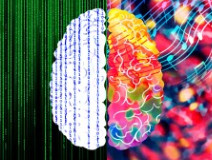Author: DynamicBrain Inc.
Publication: Monthly Newsletter
Published Date: October 22, 2022
Did you know that there are over 20 published studies related to aging and driving that have demonstrated that a “smaller field of view,” “slower reflexes,” and a “reduced ability to filter distractions” are the top causes of automobile accidents for older adults?
Among other things, these studies have shown that, after training for 10 hours on two exercises in BrainHQ, drivers on average:
- make 38% fewer dangerous driving maneuvers;
- can stop 22 feet sooner when driving 88 kilometers per hour (55 miles per hour);
- feel more confident driving in difficult conditions (such as at night, in bad weather, or in new places);
- cut their at-fault crash risk by 48%; and
- keep their license later in life.
The two exercises used in the clinical trials were Double Decision and Target Tracker. I hope that you will take this modest step and use these two exercises to improve your cognitive skills. It may save your life and the lives of your loved ones and many others.
We are also offering the Useful Field of View (UFOV) Assessment program. It is a breakthrough cognitive assessment that reliably predicts crash risk in drivers. If your profession relates to assessing driver risk factors, please feel free to contact us for further information. The program is used in numerous hospitals, health institutions, and driving assessment programs across the US and Canada in English and French.
Remember your BrainHQ training today, and, if you still don’t have full access to Double Decision and Target Tracker, join here.

Kind regards, Frieda Fanni
President
DynamicBrain Inc.
DynamicBrain Inc. is the Canadian partner of Posit Science Corporation since 2010 providing brain fitness program BrainHQ in English and French.
|
 |
 Two sides of the story
Two sides of the story
The left side of our brains is normally where language processing happens—understanding individual words and the meaning they communicate when they’re stringed together into sentences. The right side is normally where the brain processes the emotions communicated through voice—determining whether someone speaking to you is happy or sad, angry or calm. So, what happens if one of the sides of the brain is injured at birth? Will infants still acquire the full gamut of language abilities? These are the questions one group of researchers sought to answer.
Check out what their study uncovered.
 A new vision of the brain’s possibilities
A new vision of the brain’s possibilities
A team of researchers at the University of California recently examined treatment for Leber congenital amaurosis (LCA)—a group of inherited retinal diseases that cause severe visual impairment at birth. Previous studies showed that treating the retina with specific chemical compounds can partially restore vision in children with LCA. The team of researchers wanted to see whether the same treatment could make a difference for adults with LCA.
Read about the team’s eye-opening discovery.